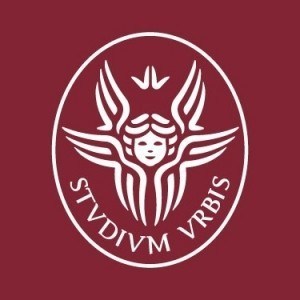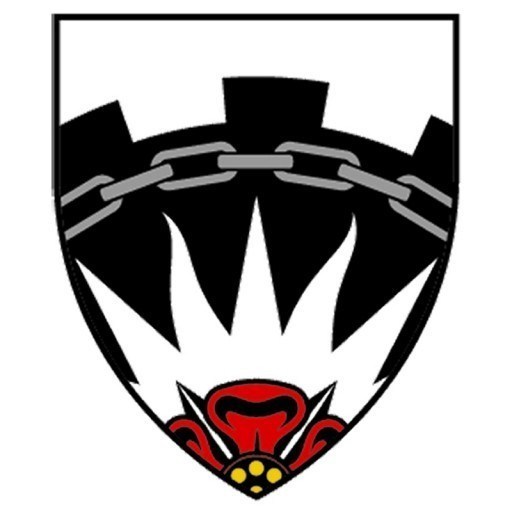Photos of university / #vanderbiltu
The undergraduate Bachelor of Science in Biomedical Engineering at Vanderbilt University is a comprehensive program designed to prepare students for innovative careers at the intersection of engineering, medicine, and biological sciences. This rigorous curriculum combines principles from mechanical, electrical, and chemical engineering with advanced coursework in biology, physiology, and biomedical sciences to equip students with the skills necessary for developing medical devices, diagnostic tools, and healthcare technologies. Students in this program gain hands-on experience through laboratory research, design projects, and internships, fostering a deep understanding of both theoretical concepts and practical applications. The program’s interdisciplinary approach encourages collaboration across biomedical fields, promoting problem-solving skills and critical thinking essential for advancing healthcare solutions. Vanderbilt’s state-of-the-art facilities, dedicated faculty, and strong research community provide an ideal environment for students to explore areas such as biomaterials, biomechanics, imaging, and bioinstrumentation. Graduates of this program are well-prepared to pursue careers in industry, healthcare, research, or to continue their education in medical or graduate schools. The program also emphasizes ethical considerations in biomedical engineering, ensuring students are prepared to develop innovative yet responsible technological solutions. Overall, the Vanderbilt Biomedical Engineering undergraduate program offers an engaging and challenging education designed to produce the next generation of healthcare innovators, scientists, and engineers committed to improving human health and well-being through technological advancements.
Master of Engineering
The M. Eng. is an advanced professional degree awarded by the School of Engineering. It is designed to provide advanced instruction to qualified students who are interested in applying engineering principles to biological systems. The purpose of the program is to prepare students for the professional practice of biomedical engineering. The emphasis of the Master of Engineering Program is different from that of the Master of Science Program. The M.S. program emphasizes research and requires completion of a thesis, while the M. Eng. program emphasizes professional practice through 30 hours of didactic instruction and a supervised design project. Courses are distributed as follows:
- Biomedical Engineering: 12 hours
- Subspecialty Area: 6 hours
- Engineering Design: 6 hours
- Professional Practice: 6 hours
In addition, the candidate must complete a design project, and present results to the faculty.
Master of Science
Candidates for the master of science (M.S.) degree must complete 30 hours of graduate-level credit, approved by the faculty, with the following minimum distribution of didactic hours:
- Biomedical Engineering: minimum of 12 credit hours
- Life Science: minimum of 3 credit hours (MPB 8330, or equivalent)
- Advanced Engineering/Science: minimum of 9 credit hours
At least 6 of the BME hours and 3 of the advanced science or engineering hours must be 6000+ level courses. One (1) hour of BME seminar and 6 hours of thesis research credit hours can count toward the total of 30 hours necessary for the M.S. degree. In addition, the candidate must submit a research thesis for faculty approval and give a final oral presentation.
Regularly Offered Full Graduate Courses:
- BME 7410 Quantitative Methods in Biomedical Engineering
- BME 7413 Advanced Biomechanics
- BME 7419 Engineering Models of Cellular Phenomena
- BME 7410 Laser-Tissue Interaction and Therapeutic Use of Lasers
- BME 7420 Optical Diagnosis: Principles and Applications
- BME 7425 Physical Measurements on Biological Systems
- BME 7310 Advanced Computational Modeling and Analysis
- BME 7430 Cancer Imaging
- BME 7440 Neuroimaging
- BME 7473 Design of Medical Products, Processes and Services
- BME 5420 Advanced Quantitative and Functional Imaging
- BME 7420 Magnetic Resonance Imaging Methods
- BME 7500 Independent Study in Biomedical Engineering
Recently Offered Special Topics Courses:
- BME 8900 Advanced Biomaterials
- BME 8900 Tissue Engineering and Drug Delivery
- BME 8900 Advanced Systems Biology
- BME 8900 Advanced Automated Biology
- BME 8900 Advanced Drug Delivery
- BME 8900 Cellular Transport Phenomena
- BME 8900 Advanced Therapeutic Bioengineering
- BME 8900 Optical Microscopy and Imaging
- BME 8900 Advanced Magnetic Resonance Engineering
- BME 8900 Advanced Image Reconstruction in MRI
Requirements
Students applying for admission to the graduate program in biomedical engineering must meet the general requirements of admission of the Vanderbilt University Graduate School. Admission is competitive and students are selected on the basis of their scholastic preparation and intellectual capacity. All applicants shall have maintained a B average in their undergraduate work, provide three letters of recommendation and take the General Graduate Record Examination (GRE). Applicants for study in biomedical engineering should have a bachelor's degree in engineering or science, with the following minimum preparation:
Biology- two semesters of molecular-based biology
Mathematics- calculus, differential equations, and statistics; one semester of computer programming highly recommended.
Physics- two semesters, modern physics recommended
Chemistry- two semesters; biochemistry or organic chemistry recommended
Engineering - one course in basic electrical engineering, and introductory courses in two of the following three areas: materials science or biomaterials, mechanics or fluid mechanics, transport or heat and/or mass transfer, signals and systems. Courses in instrumentation and systems physiology are highly recommended.
Research or Design Experience - highly recommended.
Special plans may be made on an individual basis for students who are highly prepared in one area, but underprepared in another. Students seeking admission without this background should be prepared to take these courses. Such courses cannot be counted toward graduate degree requirements and are ordinarily not included as part of tuition scholarship awards.
Applicants should have a minimum 3.0/4.0 grade point average overall, in the last two years of undergraduate study, and in their major field.
Average GPA and GRE scores for admitted students in recent years:
| 2013 | 2014 | |
| GPA | 3.70 | 3.62 |
| GRE Verbal (%ile) | 80.5 | 79.1 |
| GRE Quantitative (%ile) | 88.1 | 85.0 |
| GRE Writing (%ile) | 64.8 | 66.4 |
Students for whom English is not the primary language and who have not earned a degree at an English-speaking US institution must take the Test of English as a Foreign Language (TOEFL) examination. A minimum score of 100 (600 on the old (paper-based) scoring scale) is required.
Admission to the program is competitive and limited by financial support and available positions in laboratories. Qualifications of an applicant are judged relative to the qualifications of the entire applicant pool.
Scholarships
BME students receive their financial aid from numerous sources: Teaching Assistantships, Research Assistantships, Training grants, individual fellowship (most commonly the NSF graduate fellowship). Each year, some of the top applicants are considered for special topping-up fellowships supplied by IBM or the Vanderbilt Graduate School.
The Vanderbilt University offers a Bachelor of Science in Biomedical Engineering through its School of Engineering. This program provides students with a comprehensive education that combines principles of engineering, biology, and medicine to develop innovative solutions for healthcare challenges. The curriculum integrates coursework in engineering fundamentals, biological sciences, and medical sciences, equipping students with the skills necessary to design and analyze biomedical devices, imaging systems, and diagnostic tools. Students have opportunities to engage in research projects, internships, and collaborations with medical professionals, fostering a practical understanding of the field. The program emphasizes hands-on laboratory work, design projects, and interdisciplinary teamwork to prepare graduates for careers in medical device development, healthcare technology, or further graduate study. Vanderbilt's state-of-the-art laboratories and collaborative environment support experiential learning. The program prepares students for professional roles in biomedical industries, research institutions, or medical device companies, as well as for advanced study in graduate or professional schools. Students may also benefit from Vanderbilt's strong connections with local hospitals and biomedical industries, providing pathways for internships and employment. The university promotes innovation and entrepreneurship in biomedical engineering, encouraging students to develop new technologies and treatments. Overall, Vanderbilt’s Biomedical Engineering program aims to produce well-rounded graduates capable of applying engineering principles to advance healthcare and improve patient outcomes.




